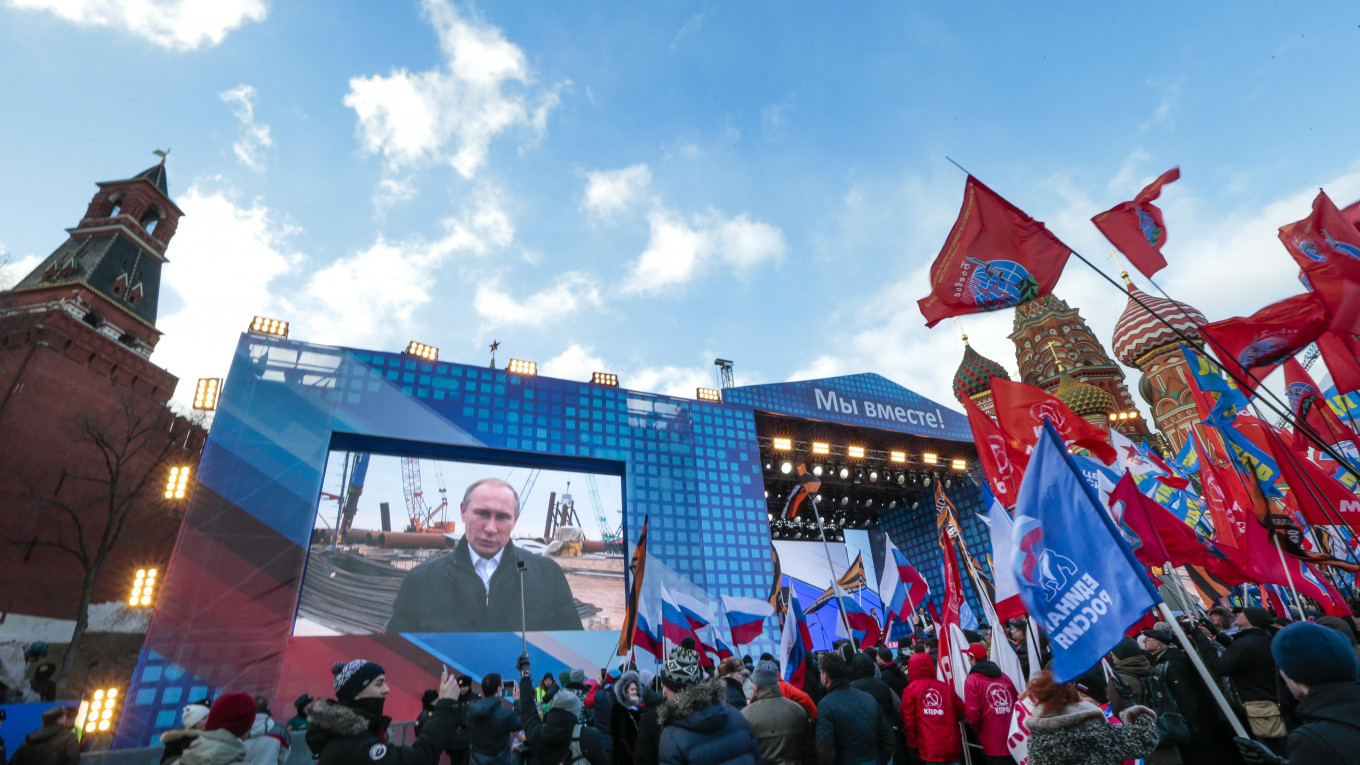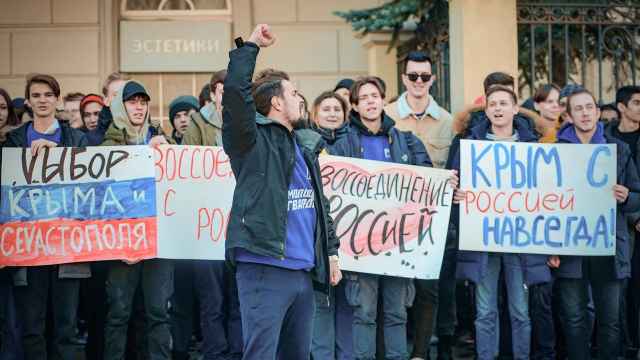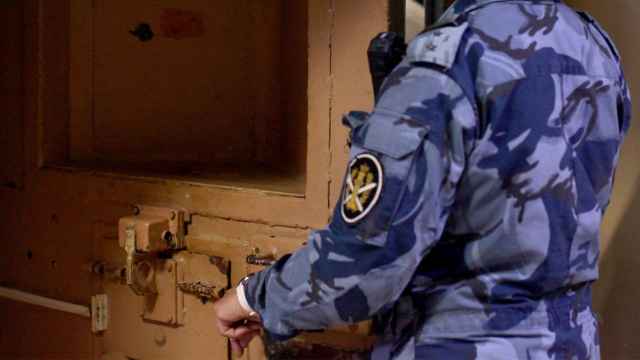Most Russians still support Vladimir Putin's presidency, but the surge in popularity Putin has enjoyed since the annexation of Crimea in March 2014 is beginning to fade, according to the latest poll by the independent Levada Center.
The president's approval ratings remain high: 22 percent of Russians say they fully trust Putin, and 50 percent say they trust him somewhat. Ten percent of the country says it views President Putin with admiration, and 32 percent of Russians say they're sympathetic to the president. Twenty-seven percent of respondents say they don't have anything bad to say about Putin, and 17 say they're either neutral or indifferent about the president. Just 14 percent of Russians express cautious, critical, or disapproving thoughts about Vladimir Putin.
The nature of Putin's support over the years has changed. In the mid-2000s, his popularity was most closely associated with economic success and rising living standards. More recently, Russians credit President Putin with restoring the military and strengthening Russia's role on the global stage.
Since the annexation of Crimea, the number of Russians who say improving living standards has been Putin's greatest failure has more than doubled, peaking this month at 32 percent. Russians also say the fight against corruption and bribery is one of Putin's weakest policy areas.
There's also been a 10-percent drop over the past three years in the number of Russians who say Putin brings the country new hope for positive change. For the first time since March 2014, more than half of the country now says they're tired of waiting for the president to make “positive reforms.”
“The Crimean consensus is fading,” says Denis Volkov from Levada Center. “It’s not clearly visible in Putin’s approval ratings, but it’s visible in the drop of other institutions' credibility, like the cabinet, the Duma, and so on.”
Last month, just 38 percent of Russians said they approved of the State Duma. The Russian government had a slightly better report card with a 43-approval rating.
A Message from The Moscow Times:
Dear readers,
We are facing unprecedented challenges. Russia's Prosecutor General's Office has designated The Moscow Times as an "undesirable" organization, criminalizing our work and putting our staff at risk of prosecution. This follows our earlier unjust labeling as a "foreign agent."
These actions are direct attempts to silence independent journalism in Russia. The authorities claim our work "discredits the decisions of the Russian leadership." We see things differently: we strive to provide accurate, unbiased reporting on Russia.
We, the journalists of The Moscow Times, refuse to be silenced. But to continue our work, we need your help.
Your support, no matter how small, makes a world of difference. If you can, please support us monthly starting from just $2. It's quick to set up, and every contribution makes a significant impact.
By supporting The Moscow Times, you're defending open, independent journalism in the face of repression. Thank you for standing with us.
Remind me later.






